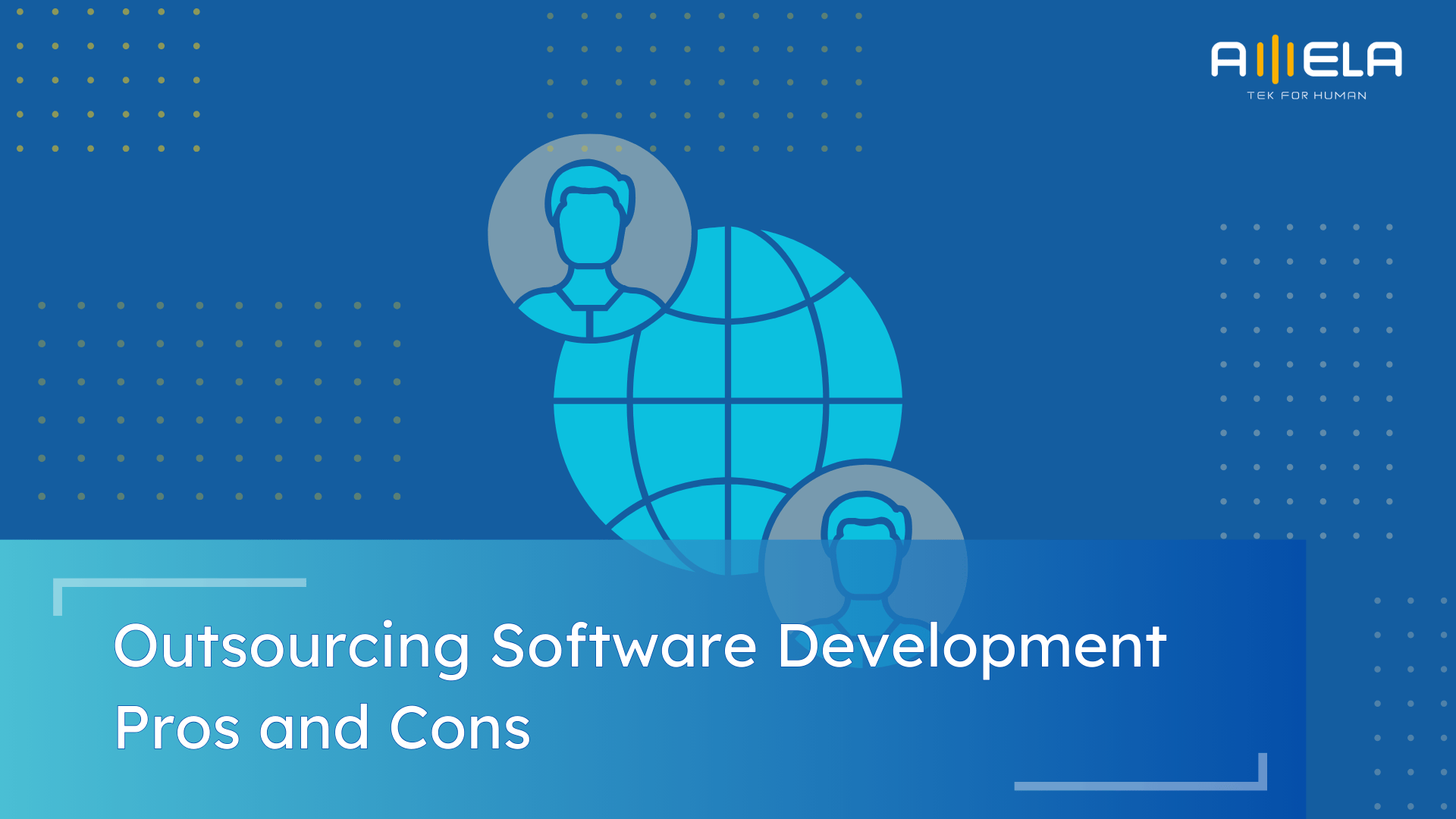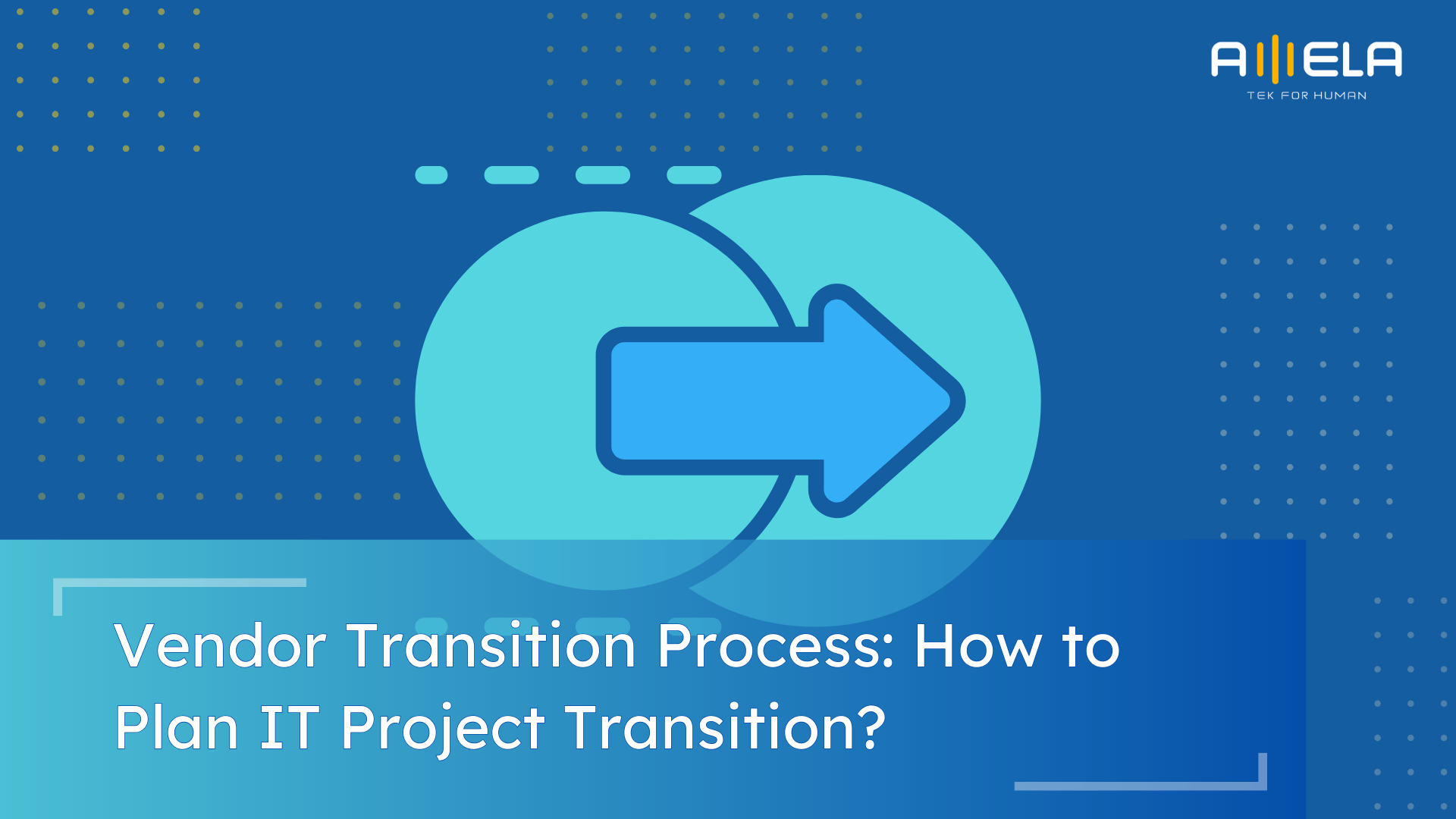Table of Contents
The search for the right outsourcing partner often starts with one question: who are the best players in the market? Vietnam has earned its spot as one of Asia’s most attractive outsourcing destinations, thanks to competitive rates, skilled engineers, and a delivery style that balances speed with quality. In this guide, we break down the top 10 software outsourcing companies in Vietnam — from global giants to rising stars. Each company brings a different flavor: some excel at large-scale enterprise transformation, others are known for helping startups ship MVPs fast. Along the way, we’ll also explore why Vietnam has become such a strong contender in the global outsourcing scene, how to choose the right partner, and what to expect in terms of cost, industries, and quality.
1. Why Outsource Software Development to Vietnam?
In this section, we’ll unpack the key reasons Vietnam has become a go-to hub for outsourcing — from competitive costs and skilled talent to government support, lower attrition, and a thriving tech ecosystem.
Competitive Costs
Vietnam delivers a compelling price–performance story. Local compensation benchmarks show mid-level software engineers earning ~US$1.3–1.6k/month (median ranges vary by stack/role), which keeps partner bill rates highly competitive while still supporting sustainable teams.
Vendor rates typically let you staff a full product pod (PM/Tech Lead/FE/BE/QA/DevOps) for the price of a smaller team elsewhere. In short: fewer heroics, more predictability. For buyers comparing software companies in Vietnam to other markets, this is often what tips the scale.
Quality-over-Quantity Mindset
Instead of throwing bodies at problems, many Vietnamese teams optimize for maintainability and steady velocity. You’ll see disciplined Git practices, sensible architecture choices, and “boring but reliable” stacks when that’s the right call—plus strong mentorship ladders that bring juniors up without risking your roadmap. The effect is cumulative: fewer regressions, faster onboarding, and codebases that don’t turn into archaeology projects.
English Proficiency & Work Culture
Communication is workable and improving. Vietnam ranks#8 in Asia on the EF English Proficiency Index – a moderate proficiency band that aligns with what many clients experience: smooth written comms (tickets/specs/PRs) and increasingly confident spoken English among mid-career engineers. Coupled with collaborative, detail-oriented team norms, that translates to clearer specs, fewer rework loops, and faster iterations with your product managers.

Lower Attrition Rates
Stable teams ship better software. Survey data from 2024 indicates 47.2% of software outsourcing companies in Vietnam reported only slight turnover (1–10%) in the prior year, remarkably controlled given global post-pandemic churn. Lower attrition means less knowledge drain, longer tenure on your codebase, and fewer “reset” costs each quarter. If you’ve felt whiplash cycling through talent elsewhere, Vietnam’s retention profile is a quiet but meaningful advantage.
Government Support & Stable Environment
Tech isn’t a side quest for Vietnam—it’s a national strategy. The government’s National Digital Transformation Program (Decision 749/QĐ-TTg) sets explicit goals for digital government, digital economy, and nurturing “digital technology enterprises,” giving outsourcing vendors a clear policy tailwind (and buyers a clearer compliance horizon). Practically speaking: better security posture, clearer standards, and partners who are incentivized to modernize
>>> Related: Why Outsource IT Services to Vietnam
Growing Tech Ecosystem
Vietnam’s ecosystem is moving up the stack. Local champions are pouring serious capital into AI, cloud, and silicon—signal that capabilities (and talent) are compounding. Case in point: FPT’s planned US$200M AI factory with NVIDIA tech, a credible indicator that the country’s engineering base is gearing for next-gen workloads, not just staff-aug. For buyers scanning the top tech companies in Vietnam, this momentum translates into richer partner ecosystems and better upstream tooling.
2. Top 10 Software Outsourcing Companies in Vietnam
Below, we break down the top 10 outsourcing companies in Vietnam, reviewing what they actually bring to the table, the kind of clients they fit best, and what you can realistically expect when working with them.
FPT Software (The Global Giant)
If you’ve done even a bit of research on Vietnam IT, you’ve heard of FPT. They’re the big dog — founded in 1999, now boasting 27,000+ employees and offices in over 30 countries. They’ve got the scale to take on multi-year, multi-million-dollar projects without breaking a sweat. Fortune 500 companies in automotive, finance, healthcare, and logistics all tap them for digital transformation, cloud migration, and AI/IoT work.

The upside? Enterprise-level muscle. If you’re a large organization that needs serious governance, SLAs, and round-the-clock global coverage, FPT delivers. Their processes are tight, certifications are in place, and you won’t need to explain the basics.
The catch? With size comes bureaucracy. If you’re a startup looking for flexibility, you might feel like a small fish in a huge pond. Still, for enterprises, FPT is the obvious “safe” choice when evaluating outsourcing in Vietnam.
AMELA Technology
Here’s where things get exciting. AMELA is not trying to be the next FPT — and that’s a good thing. With 250+ in-house engineers and access to 10,000+ partner developers, they’ve carved out a niche as the fast, flexible, and cost-effective partner that still knows how to scale. Offices in Hanoi and Tokyo give them cultural fluency in both Japan and Europe, which is rare for a company of their size.
IT & Software Services? They’ve got the modern stack covered: AI/ML, blockchain, web & mobile apps, cloud migration, DevOps, staff augmentation. But their real secret is the staff augmentation model — you can plug in offshore developers as if they’re part of your in-house squad. You stay in control, while they bring the technical muscle. That’s a huge plus for startups needing flexibility or enterprises scaling fast without locking into a massive vendor contract.
Why do clients choose AMELA? Two reasons:
- Communication is smooth. English proficiency is strong, and teams are collaborative instead of just “order takers.”
- They scale with you. Whether you’re testing an MVP or building a multi-year system, they don’t force a one-size-fits-all approach.
In short: if you want an outsourcing partner that’s modern, nimble, and won’t burn a hole in your budget – without compromising quality – AMELA is worth a serious look.

KMS Technology
KMS brings a U.S.-led mindset with Vietnamese execution power. Founded in 2009, they’ve grown into a powerhouse that doesn’t just do services — they build their own software products too. That dual focus gives them a product-builder’s perspective, which is gold if you’re outsourcing not just code but also looking for guidance on product strategy.
They’re particularly strong in QA/testing and SaaS product development. If you’re nervous about bugs slipping into production or you want a partner that obsesses over reliability, KMS is a solid match.
Clients often describe working with KMS as more like collaborating with a product partner than a pure vendor. They challenge assumptions, ask the right questions, and have structured processes to keep quality high.
Saigon Technology
Saigon Technology, based in Ho Chi Minh City, has built a reputation for pragmatic, affordable outsourcing. They specialize in .NET, PHP, React Native, and mobile apps, with ISO certifications that back up their quality claims.
Startups and SMEs love Saigon Technology because they strike the sweet spot between cost and reliability. If you’re running lean but still want code you can ship without constant patching, they fit the bill.
>>> Related: Best App Development Companies in Vietnam
Savvycom Software (The UX-Oriented Software Outsourcing Companies in Vietnam)
Savvycom, headquartered in Hanoi, has made a name by marrying engineering with design sensibility. Since 2009, they’ve delivered mobile and web platforms for healthcare, fintech, and education clients. Their teams emphasize UX and customer journey design, which is refreshing in a market that often focuses too heavily on just backend code.
Clients praise Savvycom for rapid prototyping and agile iterations — perfect if you’re in an industry where user adoption hinges on clean interfaces and frictionless design. If you’re building customer-facing applications, this focus can be the difference between “meh” and market traction.
TMA Solutions
Founded back in 1997, TMA is practically part of Vietnam’s outsourcing history. With development centers in Ho Chi Minh City and a client list stretching across telecom, finance, and enterprise IT, these guys have earned their stripes through sheer consistency.
They’ve been around long enough to build deep domain knowledge in telecommunications and enterprise systems, and they’ve got R&D labs working on AI, big data, and IoT to keep from going stale. Clients who work with TMA usually highlight reliability — deadlines are respected, deliverables are clear, and there are fewer surprises.
If you’re a risk-averse company that values process maturity and predictability over scrappy experimentation, TMA is a strong candidate. Think of them as the steady ship in sometimes choppy outsourcing waters.

NashTech Vietnam
As part of the UK’s Harvey Nash Group, NashTech Vietnam carries serious global credibility. Their delivery centers in Hanoi and Ho Chi Minh City churn out agile software projects, cloud migrations, and automation initiatives for clients around the world.
Where they shine is in international governance and compliance. If you’re an enterprise that needs SOC2-level assurance, tight security practices, and consistent global delivery models, NashTech ticks the boxes. You’ll get Vietnamese efficiency backed by European process rigor.
The tradeoff? Costs tend to be higher than local-only firms, but if your brand reputation hinges on compliance and governance, it’s money well spent.
Axon Active Vietnam (The Agile Purist)
Swiss-owned Axon Active is all about agile done right. They specialize in offshore delivery centers and dedicated teams, and they’re strict about Scrum ceremonies, transparency, and collaboration. If you’ve struggled with vendors that treat agile like a buzzword, Axon Active will feel like a breath of fresh air.
Their differentiators among other software outsourcing companies in Vietnam is seamless offshore teams integration into in-house squads. With clear reporting and iterative delivery, you’ll know exactly what’s happening sprint by sprint. It’s not flashy, but it’s reliable and reduces surprises.
Elinext Vietnam
Elinext is part of a global group with 20+ years of outsourcing history and a strong delivery base in Vietnam. They focus on enterprise software, IoT, and healthcare solutions, blending local cost efficiency with global project management standards.
The value they bring is stability and versatility. If you’re planning a long-term digital transformation program and want a partner that won’t disappear in two years, Elinext is worth considering. Their international experience means they can adapt to different industries quickly.
Lotus Quality Assurance (The QA Specialist)
Lotus Quality Assurance, or LQA, is unique because it doesn’t try to be a one stop service Vietnam IT company. Instead, it doubles down on software testing and QA outsourcing. Based in Hanoi, LQA serves industries like automotive, healthcare, and fintech — where a single bug can cost serious money.
Their offerings include manual and automated testing, AI-driven QA tools, and consulting on quality engineering. For many clients, LQA acts as a specialist partner alongside their main development vendor, ensuring quality isn’t just bolted on at the end but baked into the lifecycle.
If you’re building mission-critical systems and want an extra layer of assurance, LQA is a strong choice. Think of them as the safety net that saves you from nasty surprises post-launch.

3. How to Choose the Right Software Outsourcing Partner in Vietnam
Finding the right technology company in Vietnam isn’t about who gives you the cheapest hourly rate. It’s about who fits your goals, culture, and growth stage. Here’s how to evaluate vendors with criteria like a pro:
Define Your Business Goals (MVP vs. Enterprise System)
Before you even start shortlisting companies, ask yourself: What exactly am I trying to build? If it’s an MVP, you’ll want a nimble partner that can iterate quickly, pivot on feedback, and ship something testable in weeks. Mid-sized firms like AMELA specialize here. On the flip side, if you’re looking at enterprise systems or multi-year digital transformation, you’ll need a vendor with thousands of engineers, established governance, and enterprise-grade compliance — think FPT or NashTech.
Evaluate Company Size vs. Project Scale
Not every vendor is right for every project. A global corporation with 20,000+ staff may not prioritize your small SaaS app, while a boutique agency might crumble under the weight of an enterprise rollout. Matching the company’s size and experience with the scale of your project ensures you get attention, resources, and consistency at the right level.
Check Communication Skills
It’s not just about grammar. The real test is: can their PMs push back when requirements are unclear? Do they ask smart questions instead of nodding along? Vietnam ranks well in English proficiency compared to its neighbors, but cultural alignment is the extra layer that determines success. Look for partners whose teams communicate openly, because miscommunication is one of the most expensive outsourcing mistakes.
Consider Engagement Models
Vietnamese vendors are flexible, but each has its sweet spot. If you need a dedicated team to act like your offshore branch, look for companies with “lab-type” models. For clear, time-bound projects, a project-based model works better. If you just need a few skilled devs to boost your in-house team, staff augmentation can be a lifesaver. Choosing the wrong model is like wearing shoes two sizes too small — painful and unproductive.
Verify Track Record
Every vendor has a polished website. What matters is their proof: long-term clients, successful case studies, and third-party certifications (ISO, CMMI, SOC2). Ask about their client retention rate — it’s the best predictor of whether they’ll deliver consistently for you. Software outsourcing companies in Vietnam with strong references are worth their weight in gold.
Pricing Transparency and Contract Flexibility
Yes, outsourcing saves money. But “cheap” can quickly turn “expensive” if contracts are murky or change requests are overpriced. The best vendors in Vietnam will give you clear pricing, fair change-order policies, and flexible terms that grow with your needs. If a contract feels like it’s locking you in rather than partnering with you, walk away.
>>> Related: Cost of IT Outsourcing Services in Vietnam
4. FAQs
How much does it cost to outsource software development to Vietnam?
Rates usually fall between $15–30/hour, depending on skills and stack. Costs also vary by service model: staff augmentation (hiring dedicated devs) is billed monthly per engineer, while project-based work has fixed pricing tied to scope and milestones. Both are far cheaper than Western markets while keeping solid quality.
Which industries do Vietnam software companies specialize in?
You’ll see strong expertise in fintech, healthcare, e-commerce, logistics, and SaaS. Many firms also support education and digital transformation projects.
How do software companies in Vietnam compare with India or the Philippines?
Vietnam IT companies stands out with a younger talent pool, competitive rates, and lower attrition. Clients often note a “quality over quantity” mindset, with cleaner code and more consistent delivery relative to cost.
5. Conclusion
Vietnam has become a worldwide outsourcing powerhouse due to its IT businesses’ quality, philosophy, and flexibility, not just cost reductions. The ecosystem ranges from huge companies handling enterprise changes to agile partners helping startups create MVPs.
Key takeaway from this “Top 10 Software Outsourcing Companies in Vietnam” post? Matching your goals with a Vietnam software outsourcing business that knows your sector, communicates well, and adjusts to your development is key.
At AMELA Technology, we’ve built our reputation on exactly that: flexible engagement models, strong cultural alignment, and proven delivery for clients in Japan, Europe, and beyond. Whether you need a dedicated team, a full project build, or just expert support to speed things up — we’re here to help you get it right the first time.
Ready to explore our options? Let’s talk about building your next software solution together.

 Sep 16, 2025
Sep 16, 2025 

